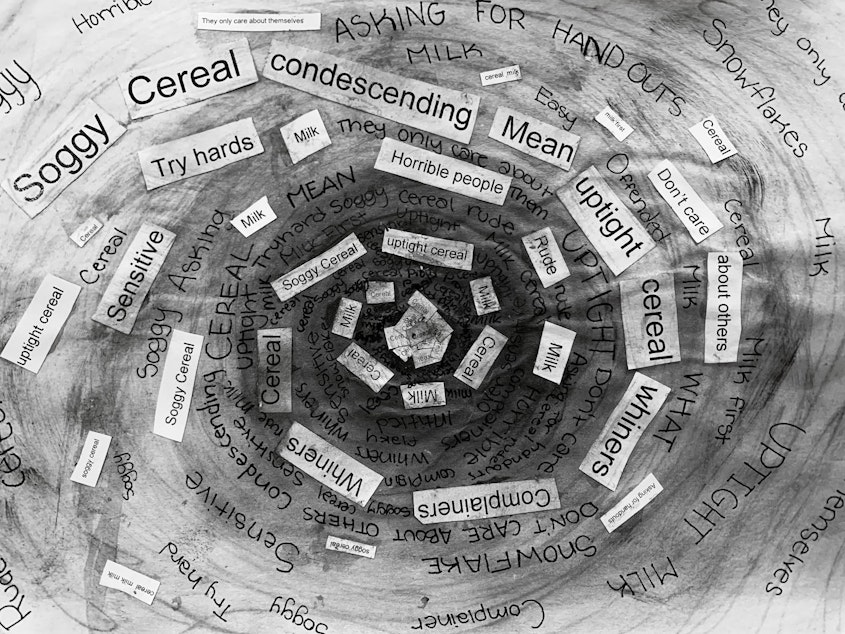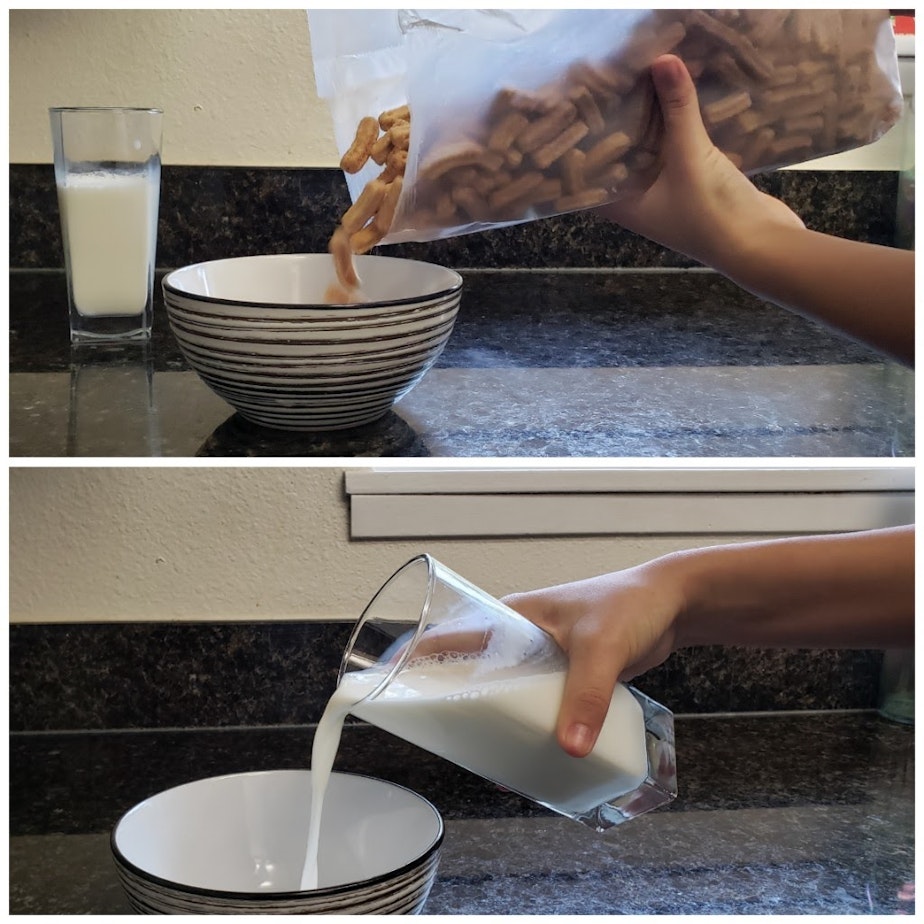One breakfast, divided. How social media polarizes us

Imagine that half of your family leans left, and the other half leans right. Would politics be your icebreaker of choice during a family gathering?
Probably not.
What about asking something like, "Do you pour milk or cereal first?" Much more innocuous, right? Nobody's going to disown their family if they disagree on eating breakfast... right?

A
fter the election, some RadioActive teen reporters had questions: about polarization, belonging, and social media. In this episode, they set out to combine factual reporting with fictional scenes to tell an even "truer" story about these questions.
[RadioActive Youth Media is KUOW's radio journalism and audio storytelling program for young people. This episode was entirely youth-produced, from the interviewing to the writing to the audio editing. Applications for our online summer Introduction to Journalism workshop are now open.]
Sponsored
Podcast highlights, at a glance
Almost all American teens are on social media now
90% of teens have used social media, according to the American Academy of Child & Adolescent Psychiatry. What does that mean for the social and psychological well-being of young people today?
"Filter bubbles" lead to polarization
Coined by Internet activist Eli Pariser, a filter bubble is what happens when algorithms on social media platforms curate feeds that match the user's own views and opinions.
Sponsored
Online communities aren't inherently dangerous
There are both positive and negative aspects when it comes to connect with others online. The key is understanding what kind of community you're part of. Is the community coming together through love of something, or hate? Does the community support different ideas and have constructive conversations?
What you can do when things go wrong on social media:
- If you come across something problematic, first take a pause, and then decide whether you want to engage in the first place. If you do want to engage, instead of going into attack mode, try having a conversation.
- Expand your filter bubble. Seek out perspectives that are not your own. Talk to and follow people who are different from you, and open your mind to learning about them, their experiences, and their thoughts.
- If you mess up and someone confronts you, apologize. Apologize about what you did or said, and not for how it was interpreted. We're all going to say stuff that's not cool. When it happens, listen, don't speak, and reflect.
This podcast was produced in an advanced producers program for high school and college students. Production assistance from Mary Heisey. Edited by Kyle Norris.



